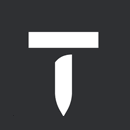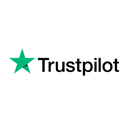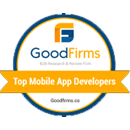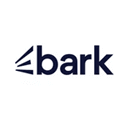-
![appsnado]() iOS Development
iOS Development
-
![appsnado]() Android App Development
Android App Development
-
![appsnado]() Web App Development
Web App Development
-
![appsnado]() Mobile App Development
Mobile App Development
-
![appsnado]() Game App Development
Game App Development
-
 Unity Game Development
Unity Game Development
-
![appsnado]() Unreal Game Development
Unreal Game Development
-
![appsnado]() React Native Development
React Native Development
-
![appsnado]() Mobile App Design
Mobile App Design
-
![appsnado]() Ecommerce App
Ecommerce App
-
![appsnado]() App Support Maintenance
App Support Maintenance
-
![appsnado]() ASO Store Optimization
ASO Store Optimization
-
![appsnado]() Flutter App Development
Flutter App Development
-
![appsnado]() Cross Platform App
Cross Platform App
-
![appsnado]() AR/VR App Development
AR/VR App Development
-
![appsnado]() Hybrid App Development
Hybrid App Development
-
![appsnado]() Mobile App Testing
Mobile App Testing
-
![appsnado]() Manual And Automated
Manual And Automated
-
![appsnado]() Crash Analytics
Crash Analytics
-
![appsnado]() Usability Testing
Usability Testing
-
![appsnado]() Quality Assurance
Quality Assurance
-
![appsnado]() Connected Devices
Connected Devices
-
![appsnado]() IoT application development
IoT application development
-
![appsnado]() Wearable App Development
Wearable App Development
-
![appsnado]() Interactive UI Design
Interactive UI Design
-
![appsnado]() Prototype
Prototype




In Demand Healthcare Mobile App Development Services
Healthcare software solutions have become increasingly important in today's rapidly changing healthcare industry. From electronic health records to patient portals, healthcare software solutions play a critical role in improving patient outcomes and enhancing the overall efficiency of healthcare operations.
As a forward-thinking innovator in the healthcare IT space, our team is well-positioned to help healthcare providers and insurance companies navigate the challenges of technological transformation. By leveraging our top-notch domain expertise and exceptional talent, you can develop custom software solutions that address customers' unique needs and pain points.
A Top-Tier Healthcare Mobile App Development
Company Making Difference
Mobile Health
Telemedicine
Internet of
Medical Things
Artificial
Intelligence
AR / VR
Blockchain
Healthcare App Development Services For the Healthcare Industry
Developing and implementing software applications and solutions in the healthcare industry to address the challenges of digital transformation, improve operational efficiency, and enhance patient care. These solutions can range from electronic health records, patient portals, and clinical decision support systems to more advanced technologies like telemedicine, artificial intelligence, and blockchain.
Augmented Reality And Virtual Reality
Augmented reality (AR) and virtual reality (VR) are immersive technologies that can provide patients and healthcare providers with a more interactive and engaging experience. AR and VR can stimulate medical procedures, educate patients about their health conditions, and provide virtual therapy and rehabilitation services.
Telemedicine
Telemedicine involves using technology to provide healthcare services remotely, such as through video conferencing, remote monitoring, and digital communication. Telemedicine can enable patients to receive timely and efficient care from healthcare providers, regardless of location, and can help reduce healthcare costs.
Mobile Health
Mobile devices, such as smartphones and tablets, to support healthcare services and access medical information. This includes mobile health applications (apps) that can help patients track their health status, monitor chronic conditions, and access healthcare services remotely.
Artificial Intelligence
Artificial Intelligence (AI) employs advanced algorithms and machine learning techniques to analyze and interpret large volumes of data, identify patterns and insights, and support decision-making. AI can improve clinical decision-making, diagnose diseases, and develop personalized treatment plans in healthcare.


Strategic Healthcare
Mobile App Development Services For Better Outcomes
Whether you're building a new electronic health record system, designing a patient portal, or developing a claims processing system for insurance providers, your healthcare software solutions can significantly impact the industry. By streamlining workflows, reducing errors, and improving communication between patients and providers, you can help healthcare organizations deliver better care and achieve better outcomes.

Technical Design Workshop For Healthcare IT Services
A technical design workshop is an essential part of the healthcare IT services development process. It is a collaborative session between stakeholders, developers, and designers that aims to define the technical aspects of a project. The workshop's first step is defining the project's objectives and goals.
Everyone clearly understands what needs to be accomplished and can align their efforts accordingly. In the business requirements transformed into functional requirements step, the workshop participants take the high-level business requirements and turn them into detailed functional requirements. The workshop participants create an initial design of the system architecture. This includes defining the technical infrastructure, such as the servers, databases, and software components, that will be used to build the system.
Once the architecture is defined, the participants work together to create a detailed project plan that includes timelines, budgets, and resources. This helps to ensure that the project stays on track and that resources are allocated efficiently. Finally, the workshop participants develop a clear product strategy and development roadmap. This outlines the features and functionality of the healthcare IT services product, as well as the milestones and timelines for development.
Get StartedPatient-Centered Mobile Health Apps We Develop
Patient-centered apps are mobile applications that are designed to improve the patient experience and help individuals take a more active role in managing their own health. These types of apps can provide a range of features and functionalities that are tailored to the specific needs of the patient. These apps allow patients to schedule and manage their appointments with healthcare providers. They can also send reminders and notifications to patients to help ensure that they don't miss appointments.
Patient portals provide patients with access to their personal health records, lab test results, and other medical information. Patients can also use these portals to request prescription refills and schedule appointments with healthcare providers. Telemedicine apps allow patients to receive medical consultations and treatment remotely. This can include primary care telemedicine, teleneurology, and telerehabilitation services.
Appsnado builds fitness and wellness apps that can help patients monitor their vital signs, such as blood pressure and blood glucose levels, as well as track healthy habits, such as water intake, calories, and physical activity. Mental health apps can provide patients with tools and resources for managing stress, anxiety, and other mental health conditions. Medication intake tracking applications help patients track and manage their medication intake, including reminders for when to take their medication and alerts for when refills are needed. AI-powered symptom checkers can help patients identify potential health issues and provide guidance on when to seek medical attention.
Discover More

Internet Of Medical Things-An Excellent Healthcare Software Solution
The IoMT has the potential to revolutionize healthcare delivery by providing real-time monitoring of patient's health status, enabling early detection and intervention of health conditions, and improving the accuracy and speed of medical diagnoses. The IoMT can also facilitate remote patient monitoring and telemedicine, allowing healthcare providers to deliver care to patients in their homes or other remote locations. This can reduce the need for hospitalizations and decrease healthcare costs.
However, the widespread adoption of the IoMT also raises concerns about data privacy and security, as patient data is transmitted over networks and stored in the cloud. Healthcare organizations and technology companies must ensure that appropriate security measures are in place to protect patient data from cyber threats and unauthorized access. Additionally, healthcare providers must be trained to effectively use the IoMT technology and interpret the data collected to make informed medical decisions.
The IoMT represents a significant opportunity to transform healthcare delivery by leveraging the power of technology to improve patient outcomes and reduce healthcare costs. However, it is important to address the potential risks and challenges associated with IoMT adoption to ensure that patients' privacy and security are protected and that healthcare providers are equipped with the skills and knowledge necessary to use these technologies effectively.
Get A QuoteFitness App Developers Create Scalable Solutions For Medical Staff
Medical professionals have access to a wide range of mobile applications that can improve their practice and enhance patient care. One category of apps that can be particularly useful is appointment management applications, which help healthcare providers manage their schedules, track patient appointments, and receive alerts for upcoming appointments. These apps can also help reduce no-shows and improve patient satisfaction by enabling patients to book appointments online, receive appointment reminders, and reschedule appointments as needed.
Another category of apps that can be beneficial for medical professionals is remote patient diagnosing applications. These apps enable healthcare providers to remotely diagnose and treat patients using video conferencing and other remote communication technologies. This can be particularly useful for patients who live in remote or underserved areas, as it can reduce the need for travel and increase access to medical care.
Remote patient monitoring applications can help healthcare providers track patients' health status and provide timely interventions to prevent complications, particularly for chronic diseases such as diabetes, COPD, and cardiac diseases. Finally, medical networking and education applications can provide healthcare professionals with access to educational resources, clinical guidelines, and networking opportunities, which can enhance their knowledge and skills to improve patient care.
Learn More

Fitness And Healthcare Solutions For Users and Professionals
The healthcare industry is poised for significant transformation in the coming years, and healthcare software solutions will play a critical role in driving that change. With your expertise and talent, you can help healthcare providers and insurance companies stay ahead of the curve and succeed in a rapidly evolving landscape.
Patient-focused fitness and wellness apps can help patients take a more active role in managing their own health and improve the overall patient experience. These apps can provide patients with more control over their healthcare and enable them to make more informed decisions about their health and well-being.
Get StartedElectronic Health Record (EHR) Software With Guaranteed Interoperability
Healthcare providers can benefit from a variety of mobile applications designed to streamline their workflows and improve patient care. Electronic health record (EHR) is an essential app for healthcare providers, as it enables them to access and update patient records from any location and share information with other providers as needed. EHR software can help improve care coordination, reduce errors, and increase efficiency. Clinical assistance apps with EMR/EHR access can provide healthcare providers with access to clinical decision-support tools, drug reference guides, and other resources to support clinical decision-making.
Timetable scheduling applications can help providers manage their schedules, track patient appointments, and receive reminders for upcoming appointments. Medical HR software can help healthcare providers manage staffing and recruitment, track employee performance, and ensure compliance with labor laws and regulations. Billing applications can streamline the billing process and help healthcare providers ensure that they are reimbursed for the services they provide. Inventory management apps and drug inventory tracking applications can help healthcare providers manage their inventory, track expiration dates, and reduce waste. Finally, digital workplaces for doctors and nurses can provide a secure platform for communication and collaboration, enabling healthcare providers to share information and consult with colleagues as needed.
Hire A Professional
What Our Clients Say
Customer satisfaction is at the heart of everything we do, and we always ensure they are happy with the results we deliver. This has allowed us to amass a vast clientele who is never disappointed.








































































